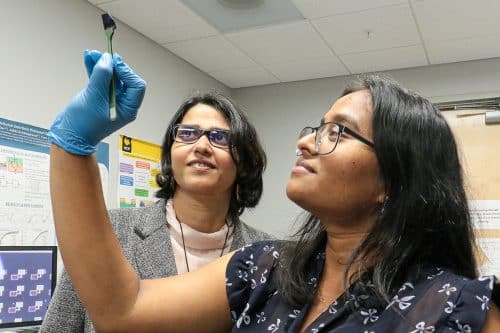A new research project from the University of Central Florida that aims to make artificial intelligence (AI) work without the use of the internet.
The sophisticated neuromorphic or brain-like devices developed by the researchers are built on small, rectangular chips that are about an inch across. Other researchers have attempted to develop similar technologies, but the UCF-developed devices are more reliable due to their unique architecture and nanoscale components. Two-dimensional (2D) materials have been used to create transparent, flexible, ultra-thin memristive synapses for neuromorphic computing.

Thanks to the gadgets that UCF researchers are developing, artificial intelligence will be able to work without having to connect to the internet. UCF researchers built it directly on the main chip, rather of growing it on another substrate and then transferring it. They’re made on the same platform, which reduces chemistry-induced aberrations that can occur when using the transfer. By taking a different method, the researchers were able to change the way the current passes through the device. This reduces device variability, which enhances device reliability.
The chips, according to the experts, might be utilised in modern technologies over the next ten years. Their next steps will be to improve the technology, which will include the creation of networks with devices that will enable for new applications like image recognition.
The new research will allow robots to do a variety of jobs, such as detecting and rescuing someone stranded in a remote place, continuously monitoring elderly people’s health, and providing evacuation in the event of an emergency. Robots currently rely on humans to teach them what tasks they must complete in a given situation. However, in the future, robots will need to be able to adapt to changing environments, which would need the use of unsupervised learning.
This research will also enable a variety of technologies, including natural language processing systems like Siri and Alexa, as well as robotics. Other advanced uses could be employed in remote parts of the world or perhaps on other planets.
Read the entire study here.





